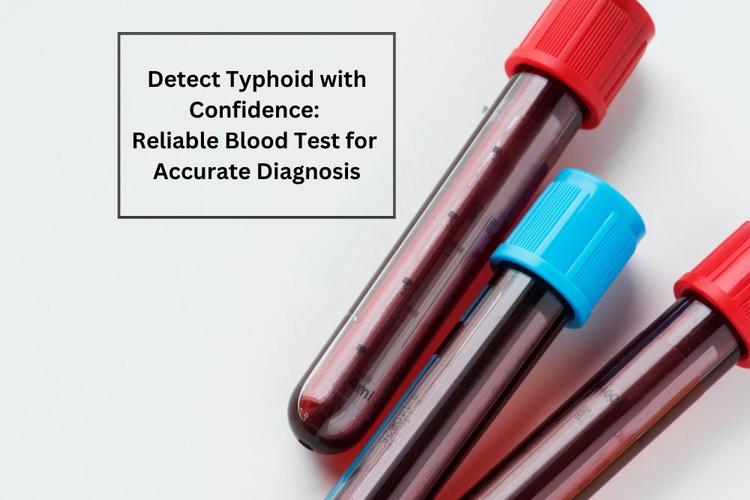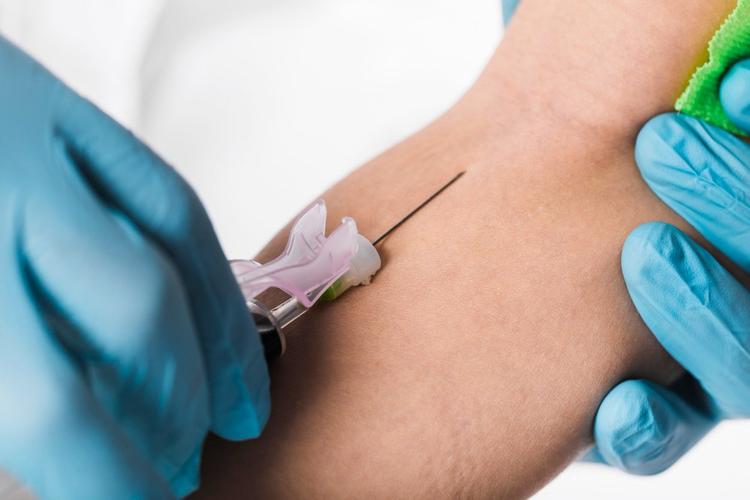WBC Count: What is the normal range? How to increase WBC count naturally?

Medically Reviewed By
Dr. Ragiinii Sharma
Written By Prekshi Garg
on Apr 25, 2022
Last Edit Made By Prekshi Garg
on Mar 18, 2024

White Blood Cells (WBCs), or leukocytes, are our body’s defence mechanism. WBCs are responsible for fighting infections in the body. With optimal core memory, WBCs can kill any foreign particle that poses a threat to the body, including bacteria and viruses that could lead to an infection.
The WBC count measures the saturation of the white blood cells in the blood. The analysis of this component in the blood is done with a Complete Blood Count (CBC) test.
In most cases, abnormal WBC levels in the blood indicate active infection in the body. While higher WBC levels are normal during an infection, lower WBC in the blood can insignificantly pair the body’s immune response.
[wptb id=6946]
This article will explore more about the WBC count, the normal range, and tips to increase the WBC count naturally.
In this Article
What is the Significance of WBC Count?
Getting a routine CBC test is very common during a regular health check-up. However, if you consult a doctor for symptoms like fever, pain, diarrhea, tiredness, etc., the chances are that your doctor might suspect you have an infection and will suggest a blood test.
The easiest way to check for infection is by analyzing the WBC levels in the blood. Not just infections, an elevated or abnormal WBC count can also indicate:
- Autoimmune disorders,
- Immune deficiencies
- Blood disorders.
In some instances, a WBC count can analyze the effectiveness of cancer treatment using radiation or chemotherapy.
What is the Normal WBC Count?
The average WBC count in the blood generally ranges between 4,000 and 11,000/microliters. However, this is a standard range. The levels will vary for men, women, and children.
The optimal WBC count in the blood indicates a healthy and fully-functioning immune system.
In the following chart, we will discuss the WBC normal range in females, WBC normal range in males and the WBC normal range in children.
| Gender and Age | WBC Count – Normal Range |
| Adult Female | 4,500 to 11,000 |
| Adult Male | 5,000 to 10,000 |
| Children | 5,000 to 10,000 |
Besides these readings, the range can differ during pregnancy and in children under the age of 2.
What is White Blood Cell Differential?
White Blood cell is composed of five elements – neutrophils, lymphocytes, eosinophils, monocytes, and basophils.
Here’s a breakdown of the normal percentage of each component in the WBCs:
| Component in WBC | Normal Range |
| Neutrophil | 55% to 70% |
| Lymphocyte | 20% to 40% |
| Eosinophil | 1% to 4% |
| Monocyte | 2% to 8% |
| Basophil | 0.5% to 1% |
Any undiagnosed disease or an underlying infection can either reduce or elevate the WBC levels in the bloodstream.
WBC Count – Causes of High and Low WBC Levels
The WBC normal range is between 4,000 and 11,000/microliters.
Any levels above or below that need medical intervention.
Low WBC Count
Medically termed Leukopenia; low WBC count is where the range is below 4000/microliters. Some of the common causes include:
- Autoimmune disorders
- HIV/AIDS
- Lymphoma
- Infections
- Lupus
- Radiation therapy
- Spleen disorders
- Alcoholism
- Malaria
In patients with low WBC, drastically lower levels of neutrophils are known as neutropenia. Individuals with low neutrophils in their bloodstream are more susceptible to infections. Your doctor will advise taking precautions in public by wearing masks, etc.
High WBC Count
Termed as leukocytosis, this is when an individual has an elevated WBC count, generally above 10000/microliters. Some of the common triggers behind this are:
- Tuberculosis
- Sepsis
- Fever
- Allergies
- Pregnancy
- Asthma
- Stress
- Tissue damage
- Vaccination
- Hemorrhage
- Heart attack
- Post-surgical complications
Elevated WBC count also happens due to poor lifestyle choices and habits, including smoking and alcoholism.
What are some Symptoms of Abnormal WBC Count?
Not many standalone symptoms indicate a low or elevated WBC count. However, since leukocyte levels become abnormal due to a medical condition, you might experience symptoms like:
- Fever
- Body aches
- Chill
- Headaches
- Fatigue
- Nausea
- Vomiting
- Abdominal pain
Any of these symptoms prompt an immediate doctor’s consultation. Getting further testing is crucial to rule out potential risks.
How to Increase WBC Levels Naturally?
White Blood Cells are responsible for multiple body functions. So, maintaining healthy levels in the body is necessary, above anything else. If your WBC levels are chronically less, lifestyle and dietary changes can help proactively.
Following are some ways how to increase WBC count naturally in the blood.
1. Consume Garlic
The active compound in garlic, Allicin, has immunomodulatory functions. If your WBC count is low, consuming garlic can regulate the body’s immune response, thereby enhancing the levels of eosinophils and lymphocytes significantly.
Allicin also has anti-inflammatory properties, which reduce the risks of inflammation in the body, further optimizing immune health.
The best way to consume garlic for immunity is by adding them to the food. You can also munch on one or two raw single-clove garlic for potent results.
2. Consume Citrus Fruits
Most citrus fruits like lemon, grapefruit, lime, oranges, etc., are packed with Vitamin C. Studies prove that Vitamin C in the body promotes the production of white blood cells significantly.
Vitamin C in citrus fruits also has antioxidative properties that reduce risks of free radical damage and regulate immune health.
We’d recommend consuming Vitamin C from natural fruit sources instead of being 100% reliant on supplements. The daily recommended amount is 75mg and 90mg for women and men.
3. Consume Broccoli
Although not a public favorite, broccolis pack in many nutrients. They are enriched with vital vitamins and minerals, all of which support the overall immune health of people.
A cup of steamed broccoli has high levels of Vitamin A, C, and E, supporting immune health and elevating WBC levels in the blood.
Also, broccoli tends to lose all its nutrients when cooked for long. So, quick steam or bake is enough to get all the nourishing benefits.
4. Consume Ginger
Like garlic, even ginger has immunomodulatory functions. It is a magic supplement for relieving symptoms of cold and cough and the prevalent inflammation in the body.
If your WBC count is low due to an underlying infection, consuming ginger tea or raw ginger in food can address those concerns well.
The active compound in ginger, gingerol, has thermogenic properties, which support and promote the immune response in the body by elevating the WBC levels.
Studies show that ginger has promising benefits in countering certain autoimmune diseases in pre-clinical trials.
5. Consume Spinach
Surprisingly enough, eating spinach can promote your WBC count in the blood. Spinach is loaded with nutrients like Vitamin C, beta-carotene, and an abundance of antioxidants, which support immune health and reduce the incidence of infections.
Vitamin A and oxalic acid also help the immunity and promote the production of white blood cells in the bloodstream.
However, like broccoli, even spinach loses its nutritional value if you cook it for long. So, either eat it raw in smoothies or blanch it in hot water for retaining the vital nutrients.
6. Almonds
Nuts, and seeds have a prominent effect in improving the white blood cells in the blood. Almonds are specially packed with Vitamin C and E, which have antioxidants.
A balanced antioxidant level in the blood reflects the overall well-being and immune health.
Besides the vitamins, almonds also contain a rich amount of healthy fats, which further regulate and optimize the overall health and body functions.
7. Consume Turmeric
A quintessential staple in most Asian households, turmeric has an abundance of benefits for one’s health.
The antiseptic and anti-inflammatory properties of turmeric reduce the symptoms associated with common autoimmune disorders in the body. Regulating these conditions inadvertently elevates the WBC levels in the blood too.
Studies indicate that the active compound in turmeric, Curcumin, prevents tissue damage and promotes muscle recovery. Pre-clinical trials also prove the immune-boosting properties of curcumin in turmeric.
8. Consume Green Tea
A powerhouse of antioxidants; green tea is enriched with different polyphenols and flavonoids, all of which support immune health.
If you are diagnosed with a low WBC count, including green tea in the diet can optimize immunity, prevent oxidative damage and promote the functionalities of the T-cells in the body.
9. Quit Unhealthy Habits
One of the most common triggers of suppressed immune health is poor life choices and habits. Smoking and excessive consumption of alcohol lead to tissue damage, altered immune response, and affects internal organ function.
So, if you are looking for natural ways to improve your WBC count in the body, quit these unhealthy habits.
10. Consume Lean Meats
Lean meats like poultry are rich in Vitamin B6. This is a crucial vitamin responsible for attenuating the body’s immune system and also supports the production of new blood cells, including WBC.
Consuming boiled, grilled, or soup with chicken and turkey promotes immune health and reduces cold, cough, and fever symptoms.
Most of the staple chicken soups prescribed during an illness are rich in chondroitin and nutrients that improve immunity.
FAQs
1. What is the high count of WBC?
Patients with WBCs over the range of 11,000/microliter are considered to have a high count.
2. Is 8.0 WBC count normal?
The normal WBC range is between 5-10 K/uL. So, 8.0 K/uL is considered normal.
3. What is an alarming WBC Count?
Levels of WBCs that exceed 11,000/microliter are considered alarming since it indicates an underlying infection or chronic disease.
Conclusion
WBC is an important marker of one’s health. Abnormal levels typically indicate poor well-being, especially with the incidence of infections or other chronic conditions in the body. If you are diagnosed with low or high WBC levels, ensure to enrich your diet and lead a healthier lifestyle to optimize and improve your overall immunity.



